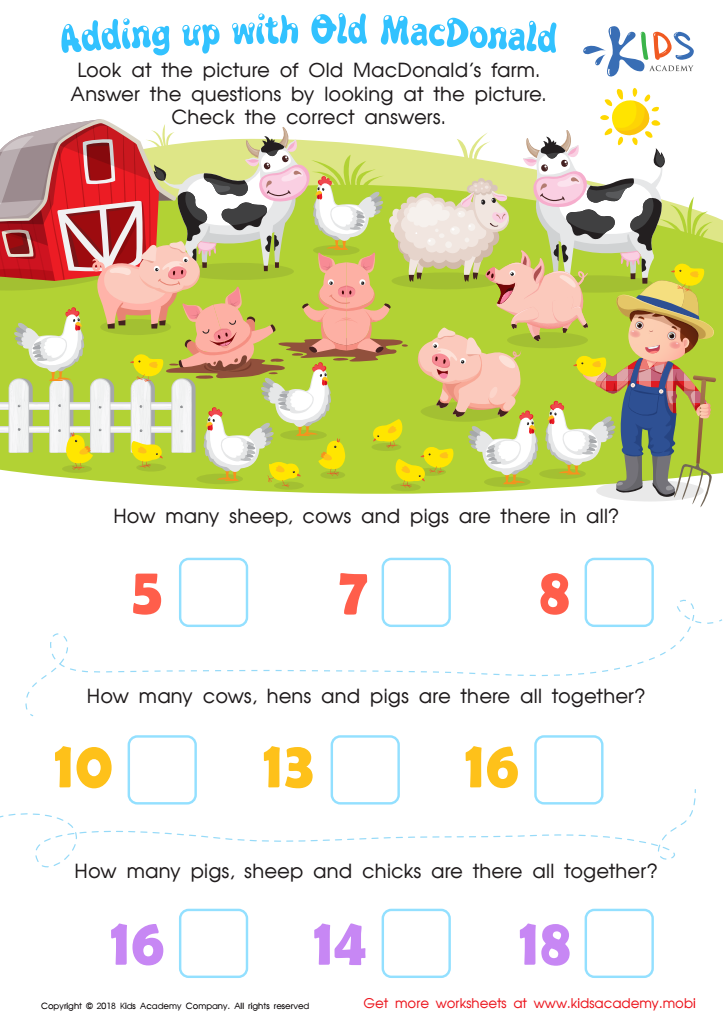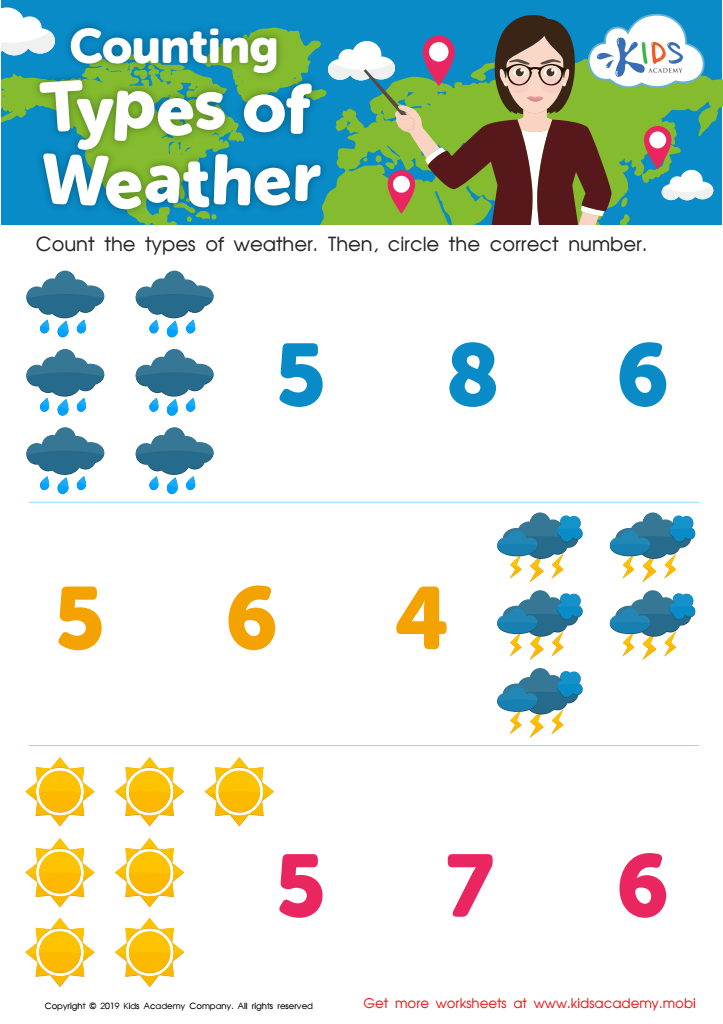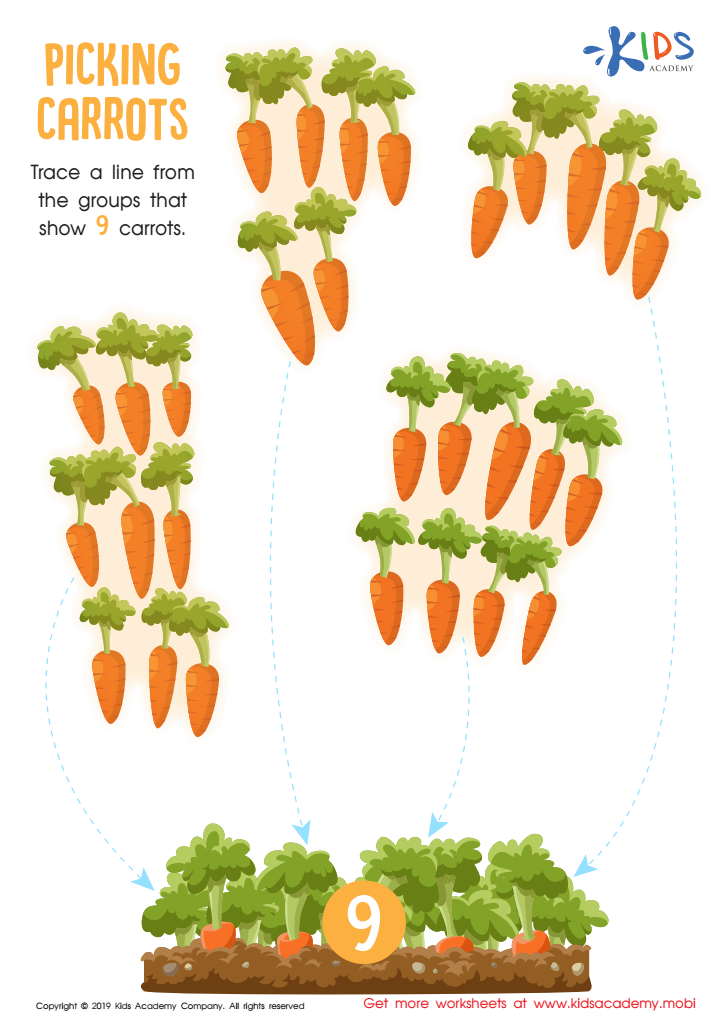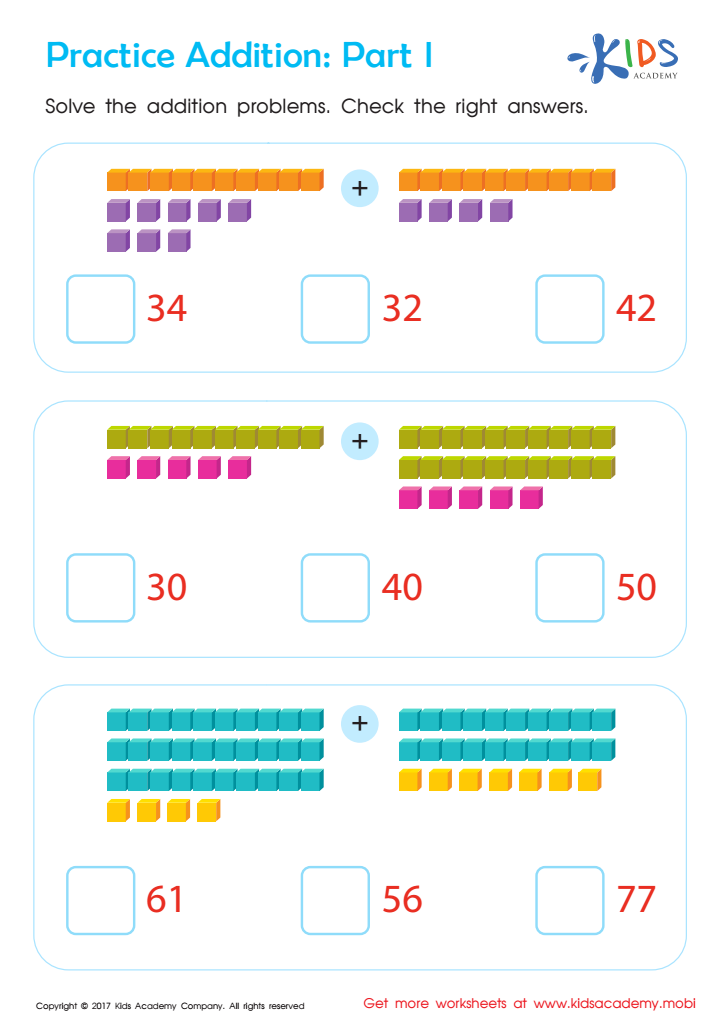Basic Arithmetic Easy Numbers Worksheets for Ages 3-7
4 filtered results
-
From - To
Discover fun and engaging Basic Arithmetic Easy Numbers Worksheets designed for children ages 3-7! These worksheets are perfect for young learners to develop foundational math skills such as addition and subtraction in an enjoyable way. Each activity encourages interactive learning through colorful visuals, practical exercises, and straightforward instructions. Tailored to enhance number recognition and problem-solving abilities, our worksheets provide a fantastic resource for both classroom and home use. Parents and teachers will appreciate how these printable activities foster a love for math while building confidence in young mathematicians. Start your child's journey to arithmetic mastery today with our thoughtfully created resources!


Adding Up with Old MacDonald Worksheet


Counting Types of Weather Worksheet


Picking Carrots Worksheet


Practice Addition: Part 1 Worksheet
Basic arithmetic skills are foundational for children's overall academic success and everyday life. For children ages 3 to 7, early engagement with easy numbers sets the stage for later mathematical understanding. Parents and teachers play a crucial role in this developmental phase, as positive experiences with numbers can boost children's confidence and foster a love for learning.
Teaching basic arithmetic, such as counting, addition, and subtraction in engaging ways, helps build critical thinking and problem-solving abilities. Children who grasp these concepts early on are better prepared for more complex mathematics in later grades. Additionally, arithmetic skills enhance cognitive development, improving memory, attention, and reasoning abilities.
Beyond academic implications, basic arithmetic is essential for everyday situations—like sharing toys, counting steps, or measuring ingredients. Helping children recognize the importance of numbers in their lives can reduce math anxiety and establish lifelong skills.
By introducing basic arithmetic in enjoyable, playful manners, parents and teachers can create enriching learning environments that inspire curiosity and exploration. This early nurturing of numeracy not only equips children for academic challenges but also empowers them for practical living, fostering independence and self-confidence along the way. Thus, early engagement with mathematics is crucial at this formative stage.

 Assign to My Students
Assign to My Students
















